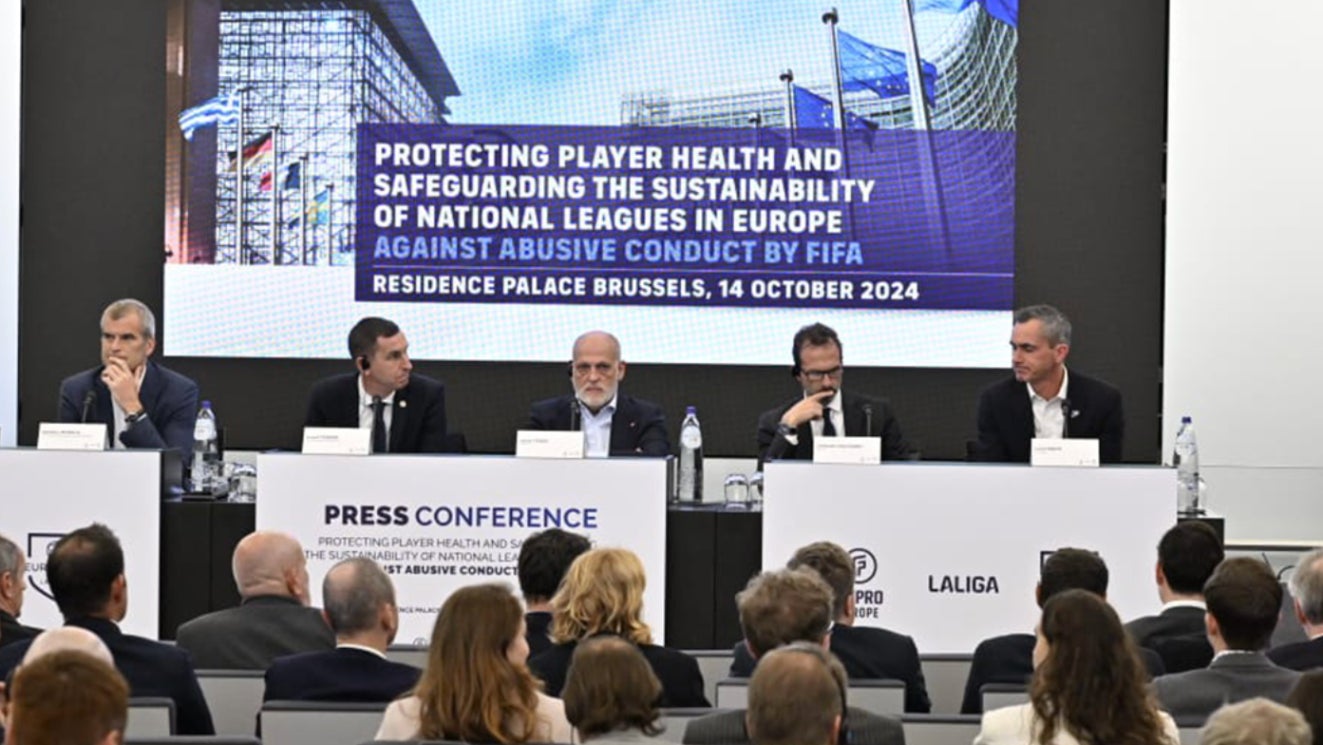
The Spanish LaLiga, European Leagues, and FIFPRO (global players’ union), organisations have joined forces to file a formal complaint against FIFA, the sport’s global governing body.
The bodies – backed by multiple European leagues – have now banded together to submit a formal complaint over FIFA’s imposition on all other soccer properties and organisations of the global match calendar.
In the complaint documentation – which was submitted earlier this week to the European Commission, who will now decide whether it requires official proceedings to be opened – the three organisations accused FIFA of “abusive and anti-competitive” conduct.
Javier Tebas, LaLiga’s outspoken and combative president, stated: “We’ve taken a very important step in changing the governance of football institutions and we’re not going to let it get away. It is a decisive day for football in Europe and the world. Write it down, because you’re going to see it in the coming months.”
The complaint alleges that FIFA being the sole arbiter of decisions regarding the match calendar is an abuse of its dominant position, and that this situation violates European competition law.
The complainants also allege that FIFA has refused to engage meaningfully with both players and domestic leagues on the topics of fixture congestion, player welfare, and the effect on both of the new-look FIFA Club World Cup that will take place for the first time in 2025, in the US. Clubs are expected to take full-strength squads to that quadrennial event.
The complainants’ boards agreed to legal action regarding the match calendar in July, and have now followed through on the decision made then.
European Leagues is claiming that FIFA’s behaviour “threatens the economic and social sustainability and stability of important national competitions [such as the European domestic leagues].”
The body also said that FIFA is responsible for “the lack of due process and meaningful engagement,” and that it has “used its regulatory power to promote its commercial interests at the expense of [players and leagues].”
European Leagues describes the inclusion of player unions and representatives in discussions around the international match calendar as “legally essential,” and says that a legal challenge is therefore “a necessary course of action to safeguard the European football sector.”
The end goal of the organisations behind this complaint is to bring FIFA to the negotiating table for a consultation process around the global calendar’s structure and format, at a time when more competitions are being expanded, and many of the world’s top players have publicly expressed concern over the general increase in fixtures at the highest level.
The Club World Cup next June and July – during a period between European domestic seasons – is seen by many as a tipping point – the previous iteration of the FIFA tournament would usually contain seven teams, while next year’s will contain 32.
FIFPRO and the World Leagues body have already made an unsuccessful request to FIFA that the Club World Cup should be rescheduled until universal agreement on a match calendar is reached.
At the unveiling of the complaint yesterday, in Brussels, alongside LaLiga, FIFPRO, and European Leagues, were representatives from England’s Premier League and Belgium’s Pro League, as well as player union leaders from other European nations.
Mathieu Moreuil, director of international relations at the Premier League, commented: “We’re in a situation where we have no choice. Legal action is the only option and that’s unfortunate. We want to protect domestic football and the ecosystem.”



